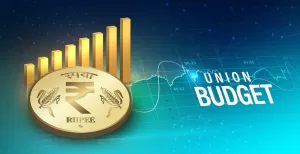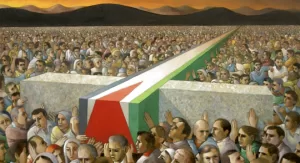Although there are still many votes to be counted the broad outlines of the South African election are clear.
There are four key factors for the left to consider.
One is that, outside of some largely rural provinces, support for the African National Congress (ANC), the party of Nelson Mandela, is now in steep decline. The ANC will not win a national majority but should be able to govern in coalition with other parties.
With massive unemployment, extremely high rates of interpersonal violence, collapsing services such as water, electricity and roads as well as brazen corruption it is not surprising that people are turning away from the party of national liberation. This means that at the national level a coalition government will be necessary. The likely character of this coalition is not yet clear.
A second point is that the massive investment in a set of new liberal parties by a set of white billionaires ended in complete failure. Their major investment was in a party called Change Starts Now which didn’t even get enough signatures to get onto the ballot. The other parties funded by white capital, namely Build One South Africa and ActionSA, as well as the independent candidature of former Marxist Zackie Achmat, all won negligible support. The established liberal party, the white-dominated Democratic Alliance, which is also funded by white capital has held its ground but the mediocrity of its leadership and its tin ear on questions of race makes it impossible to grow beyond its current limits.
A third point is that the white liberal media, which continues to exercise a powerful influence over the national conversation, was shown, once again, to be totally out of touch with the popular mood. It gave copious and often fawning space to the set of failed parties funded by white capital while failing to grasp the deep sense of political alienation driving many voters into forms of anti-liberal and at times anti-democratic populism.
A fourth point is that three of the top five parties are authoritarian and populist in orientation, with all three having a record of corruption and two, having a straightforward ethnic character. Former President Jacob Zuma’s MK Party surged on a tide of Zulu nationalism and Gayton McKenzie’s Patriotic Alliance (PA) did the same on a tide of ‘coloured’ nationalism. Zuma and McKenzie are both reckless populists and extreme social conservatives. Both take crude xenophobic positions and Zuma throws hardcore sexism into the mix while McKenzie also takes an extreme pro-Israel position. The other authoritarian populist party, the Economic Freedom Party (EFF), is, at least, non-ethnic in its support base and orientation.
The complete failure of the new liberal parties funded by white capital, as well as the equally complete failure of the white media (also funded by white capital) to understand the country, indicates the deep alienation of this sector of society from the rest of society. Despite this the hold on the digital media by white capital gives it significant power to shape the national discourse, something that those wanting a realistic understanding of the country need to approach critically. The leading political analyst Steven Friedman has been making this point for years but it has now been dramatically reinforced.
On the face of it, support for Zuma seems wholly irrational. While in the Presidency he ran a massively corrupt government that looted state-owned entities such as the Post Office, the electricity supply company, the national airline and others to the point where they have collapsed. At the same time, there was a turn to brutal repression, with the massacre of striking platinum miners in Marikana being particularly infamous. Numerous grassroots activists organizing in urban shanty towns and against mining companies in rural areas were assassinated, as well as a number of honest civil servants. Most South Africans emerged from Zuma’s nine years in the presidency poorer and the decline in intuitions, including hospitals, and services was stark. Zuma is, to put it plainly, a version of the Big Ben Mambo character in Ngũgĩ wa Thiong’o’s darkly comic novel Wizard of the Crow.
But ethnic politics can be intoxicating and people elsewhere in the world have voted for buffoons like Donald Trump, Boris Johnson, Jair Bolsonaro and Javier Milei. Unfortunately, support for Zuma, as dangerous as it is for the country’s future, is no anomaly.
The surge of support for Zuma will entrench the turn to ethnic politics, catalyze another round of looting from the state, result in an even more rapid collapse of services and institutions and place grassroots activists in grave danger of further repression, including assassinations. Everyone aside from a predatory political class will lose.
But without a left party on the ballot, the declining confidence in the ANC means that political space is left wide open for the authoritarian populists to use ethnic mobilization to mask kleptocratic forms of politics. The EFF, PA and Zuma’s new party are all authoritarian in outlook, with Zuma openly taking anti-democratic positions such as seeking to place traditional chiefs over elected representatives. If these forms of politics come to fully dominate electoral politics in the next election, which will be held in five years, democracy will face a serious threat.
This means that the left has five years to build a credible party that can speak to the terrible circumstances in which most people live and offer a viable social program to address those circumstances rather than predatory forms of ethnic populism. Getting to this point will not be easy. For a start, it will require the mass-based organizations of the left to start working together in a serious way. It will also require these organizations to hold their ground against the tiny but often vociferous sectarian middle-class organizations and networks that always demand a right to take control of popular experiments in left unity and party building.
The mass organizations of the left have considerable membership, but have significant differences in their politics and their organizational forms and cultures. Moreover, no leader has emerged who, in the manner of Lula da Silva, Bernie Sanders or Jeremy Corbyn, could unify the left. There is not a clear road ahead for the left, but without a left party the country could well be at the mercy of a predatory and kleptocratic political class unleashing the demons of ethnic politics come the 2029 election.
[Dr Imraan Buccus is a post doctoral fellow at the Durban University of Technology (DUT) and senior research fellow at Auwal socio-economic studies research institute (ASRI). Courtesy: CounterPunch, an online magazine based in the United States that covers politics in a manner its editors describe as “muckraking with a radical attitude”. It is edited by Jeffrey St. Clair and Joshua Frank.]




